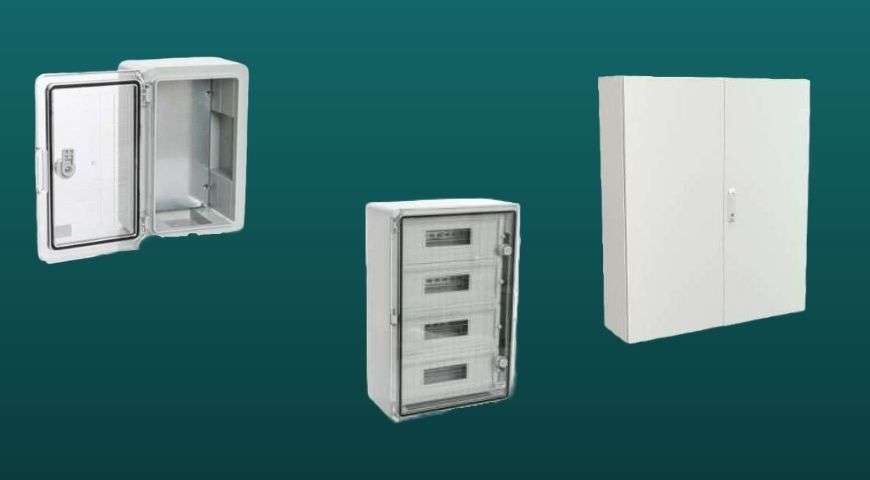If you want to buy one or more industrial electrical panels for your company and you still do not know which is the best option, do not worry, in this article we break down what types of electrical panels exist, what each of them are for and why you should opt for one or another option according to your needs. Started!
Characteristics to take into account when choosing an electrical panel
The first thing we have to do is know what are the aspects to consider when we are going to buy an electrical panel:
What will protect this electrical cabinet? The answer to this question will give us relevant data such as the dimensions or the degree of protection I need in my electrical cabinet. A standard fuse box is not the same as an industrial electrical cabinet on which the operation of a machine vital to a factory depends.
Materials of the electrical cabinet: in industrial environments, which is where we are specialized, metal electrical panels take the cake, being stainless steel and tempered steel the most demanded by companies.
Degree of protection: IP55 (dust is not prevented from entering but the amount that enters is negligible, so that it will not interfere with the operation of the equipment), IP65 (protection against contact and hermetic to dust) and IP66 (total protection against the entry of dust and water jets) are the degrees of protection to take into account.
Installation: Are we facing a simple installation as it happens with the electrical cabinets with mounting plate included, or does it require special knowledge or an installation service by the company.
Delivery time: we know, first hand, the importance of being able to have the electrical panel as soon as possible since the purchase is made. Companies, especially industrial companies, cannot afford to wait for large periods of time without the electrical cabinet installed. Therefore, the delivery time usually plays a fundamental role when buying an electrical cabinet.
What types of electrical cabinets there are and what they are for
Depending on where our electrical panel is going to be installed and the needs that it will cover in my company or home, we could place it in one of these 5 categories of electrical cabinets:
Electrical distribution panels: ideal for protecting equipment that houses magnetothermics and differentials, in addition to ensuring the protection of the people around them.
Electrical control panels: with them, the different circuits in which an installation is divided are configured and protected.
Electrical protection panels: protective cabinets or protection panels are usually used to protect equipment linked to the so-called high voltage.
Motor control panels: motor control cabinets are very common in factories and industrial plants. They are very important, since sometimes a single frame is the control point for the start and proper operation of the motors. As its name suggests, its main task is the protection of engines.
Electrical panels of servers: specialized in the protection of servers, those of all sizes. Ask Jeff Bezos to see how important servers are to your company. Surely you are much more aware than many companies of the importance of having their servers safe.
Type of electrical cabinets by external design
Although we have just made a categorization by the type of electrical cabinet, according to the functionality of each of them, it is true that the electrical panels can also be grouped taking into account their external design: box type, desk, amario, or multibox.
Update your company's electrical panels
There is a belief that electrical cabinets should not be updated. Well, nothing could be further from the truth. Renewing the electrical panels on time will save you countless problems and will provide your company with a few advantages, which we list below:
Dreduction of risks of accidents related to electrical causes.
Reduction of unwanted stops.
Increased productivity.
Substantial savings in maintenance: time and money.
Better use of energy consumption.
Fast return on investment.


